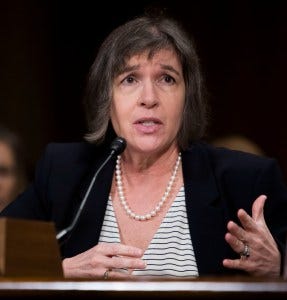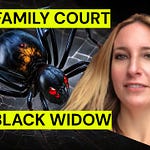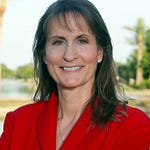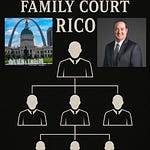NOTE: This is a version of an article first published on Frank Report.
This outlet reiterates its condemnation of anti-Semitism in all its forms. However, this condemnation does not include restricting all speech expressing that hatred. We never condone using speech to incite violence against anyone, which is precisely the legal issue at the heart of Connecticut v Paul Boyne. Did Boyne’s expression of hatred cross the boundary into inciting violence against individual Connecticut Family Court Judges? Does the prosecution itself create a chilling effect on speech, press freedoms, and expression of political opinion? Stay tuned for answers.
By Richard Luthmann
Paul Boyne, a pretrial detainee in Connecticut, argues that his prosecution violates his First Amendment rights. Boyne, held at MacDougall-Walker Correctional Institution for over a year, faces 18 counts of stalking and “electronic stalking.” Connecticut Family Court judges claim that his blog posts on FamilyCourtCircus.com are "threatening." Boyne insists that the U.S. and Connecticut Constitutions protect his speech and that the federal courts should enjoin the State Attorney's prosecution.
Boyne discussed his legal battle in an exclusive phone interview from prison with journalist Richard Luthmann. He plans to file an emergency application to the Second Circuit, seeking an injunction to stop the prosecution and command his immediate release.
The case is shaping up to be a critical test of free speech protections and the authoritarian trend of the Family Courts. It is a stark reminder of the ongoing debate over the balance between free speech, public safety, and government pretext in the United States.
In his latest volley against the Connecticut State Attorney, Boyne relies on Dombrowski v. Pfister (1965), a U.S. Supreme Court decision allowing federal courts to intervene in state prosecutions that infringe on constitutional rights. He argues that Connecticut's actions here seriously violate the First Amendment. He is now trying to convince the U.S. Circuit Court of Appeals for the Second Circuit to see it his way.
“The actions of the State Attorney fundamentally threaten free speech and political discourse,” Boyne said.
Boyne, a noted Anti-Semite, claims the State of Connecticut aims to silence dissent about the Family Courts. He alleges that Connecticut’s judiciary operates like a "Jewish Gestapo," making it "impossible for anyone to speak against them."
He argues that his prosecution is a pretext to punish him for his political views focused against Connecticut’s "Jewish" Family Court judges.
“This is about silencing any critics of the family court judiciary,” he said.
The charges against Boyne resulted from a “multi-state, multi-jurisdictional investigation” into his online activities. Connecticut’s lawyers allege that Boyne's blog posts encouraged violence against judges, often using anti-Semitic language.
One post reportedly stated, “Is [redacted name] so retarded he cannot recognize that he begs for his lynching...Amazing that a well-regulated militia...has not already popped his skull.”
Boyne insists that his speech is protected and argues that Connecticut's prosecution cannot stand, even though his posts are inflammatory.
U.S. District Court Judge Kari A. Dooley, sitting in the Federal District Court in Bridgeport, wouldn't wade into those waters. She dismissed Boyne’s petition for a writ of habeas corpus in June, citing the Younger v. Harris (1971) abstention doctrine. The doctrine generally prevents federal courts from intervening in state prosecutions based on principles of comity and respect for state judicial processes.
“The federal courts are generally barred from interfering in ongoing state prosecutions unless there are extraordinary circumstances,” Judge Dooley wrote.
Judge Dooley found Boyne’s claims of bad faith prosecution “wholly conclusory” and insufficient to bypass Younger abstention.
The State supported the dismissal, arguing that Boyne’s prosecution is legitimate and not motivated by bad faith. The State contends that Boyne’s blog posts go beyond protected speech and constitute true threats.
“The State’s interest in prosecuting Boyne’s case is significant,” Connecticut’s State Attorneys claimed in their memorandum.
Connecticut maintains Boyne’s blog posts were critical of the judiciary and called for violence against specific judges. It contends that Boyne’s prosecution is necessary to protect public officials and uphold the rule of law. The State cites the importance of the ongoing state criminal proceedings.

“Boyne can raise his constitutional claims in the state court,” the opposition papers said.
The papers emphasize that the State’s judicial process provides adequate opportunities for Boyne to challenge the charges against him. Federal intervention would undermine its ability to enforce its laws and protect its citizens.
“The abstention doctrine is not applicable because ‘offended’ Connecticut judges can have anyone locked up for clearly pretextual reasons,” Boyne responds.
And he may have a point.
In Dombrowski, the Supreme Court stated, "We hold the abstention doctrine is inappropriate for cases…where….statutes are justifiably attacked on their face as abridging free expression, or as applied for the purpose of discouraging protected activities."
The High Court held that ordinary defenses a defendant might assert during a criminal prosecution would not provide an adequate remedy at law where continuous or threatened bad faith prosecutions would have a "chilling effect" upon the exercise of First Amendment rights.
The First Amendment is at the heart of the Boyne prosecution. He represents himself in federal court because he says his counsel will not help him. He accused his state-appointed lawyers of being ineffective, claiming “they admitted they knew nothing about the First Amendment” and refused to submit his arguments.
Boyne files handwritten documents pro se because he lacks access to a law library, legal books, a computer, or a word processor.
“If I had my laptop for eight hours, I could give the Court everything it needs,” Boyne said.
Boyne argues that these conditions of confinement, coupled with Judge Dooley’s dismissal of his petition without a hearing or any chance to explain himself, violate his Fifth, Sixth, and Fourteenth Amendment rights to Due Process and the Effective Assistance of Counsel.
He also points to Article First, Section 8 of the Connecticut Constitution, which states, "In all criminal prosecutions, the accused shall have a right to be heard by himself and by counsel."
Boyne claims that the courts have effectively silenced him and denied him the opportunity to be heard. He says his lawyers are hurting his defense.
“These lawyers are clearly ineffective,” Boyne said. “Under the Connecticut constitution, I have a right to be represented by counsel and be heard by the courts. I am being denied that right. I cannot meaningfully advance legal arguments or marshal evidence under my current conditions of confinement.”
Boyne’s legal strategy is to convince the federal appeals court that the Connecticut State Prosecutor’s actions are causing widespread harm and chilling speech. He argues that his situation involves extraordinary circumstances. The prosecution criminalizes protected expression and publication of opinion and deters others from expressing criticism against Connecticut’s judiciary.
“The State’s prosecution harms free speech, commentary, and dissent in Connecticut and elsewhere,” Boyne stated.
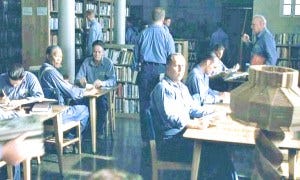
He seeks immediate release from custody and an injunction to stop the State’s prosecution. As a fallback, Boyne demands conditions that allow him to defend himself meaningfully, as due process and the Connecticut Constitution guarantees.
However, the State maintains that Boyne’s speech constitutes true threats outside First Amendment protections. Boyne’s posts include calls for violence against specific judges, so they are not protected speech. Connecticut’s State Attorneys assert that Boyne’s prosecution is essential to safeguarding public officials and maintaining order.
Boyne’s case has drawn attention due to its implications for free speech and the limits of federal court intervention in state matters. Of particular concern is where the alleged speech targets government officials. His use of anti-Semitic language and violent rhetoric complicates his defense, making it a contentious test of the First Amendment’s protections. Despite these challenges, Boyne remains committed to his fight.
“I believe the federal courts must act to protect free speech,” he said. “If they don’t, it sets a dangerous precedent that allows the State to silence political dissent through prosecution. At that point, the State of Connecticut’s power is limitless. They snatched me from Virginia. Next, it could be you or anyone else.”
Boyne’s appeal is pending, highlighting the tension between state authority, federal constitutional rights, and alleged government pretext. The outcome of this case will be a flashpoint on how far federal courts will go in protecting provocative, offensive, or even dangerous speech against state officials, which form the basis of prosecution.
This outlet expects regular updates from Boyne about the progress of his defense and the conditions of his detention.
For more coverage on the Paul Boyne case, visit Frank Report.



